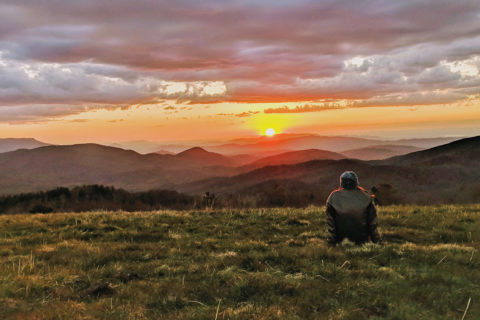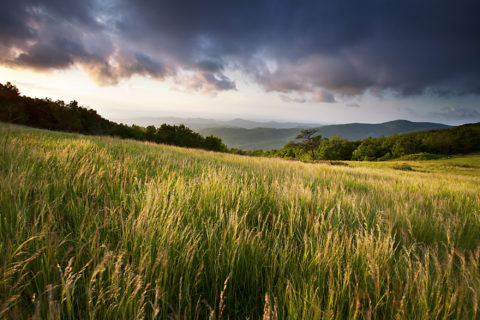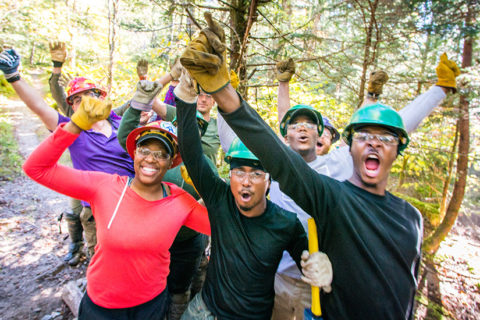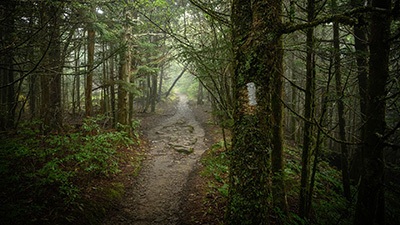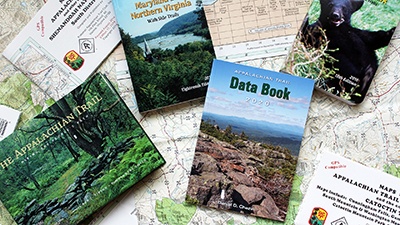Community Impact Grants
Established in October 2020, the ATC’s Community Impact Grants support local, statewide, and regional organizations that promote social, economic, and land justice in southeastern West Virginia and southwestern Virginia.
People connect with the Appalachian Trail (A.T.) in many ways depending on their culture and past experiences, and should have the opportunity to care for, participate in, and advocate for the Trail in ways that are meaningful and culturally relevant to them. All communities — particularly those that have been historically marginalized — deserve to participate in decision-making around access to healthy watersheds, foodsheds, and lands with outcomes that incorporate their values and needs.
Through ATC’s Community Impact Grants, the ATC strives to enable healthy and resilient communities by supporting projects that will measurably impact the well-being of our human and natural systems. These initiatives address environmental health, land stewardship, education gaps, green infrastructure, and growing healthy outdoor economies to support marginalized communities in southeastern West Virginia and southwestern Virginia.
In 2021, the Community Impact Grants will support the following organizations and programs:
- Giles County ($300,000): Funds will be used to develop the Giles County Trail Center near Mountain Lake, providing an information source for local trails, designated parking and restroom facilities, and access to the A.T., Mountain Lake trails and Bald Knob, the tallest point in Giles County.
- Friends of Monroe County ($43,100): Funds will lead to the development and publication of a Monroe County visitor’s guide, and the hiring of two Americorps interns who will assist in historic preservation, capacity building and cultural heritage tourism, which will help boost local outdoor recreation economies.
- Roanoke Parks and Recreation ($20,000): Funds will support a year-long Outdoor Adventure Club for underserved urban youth, introducing them to hiking, camping, rock climbing, caving, paddling, skiing and conservation projects; and will provide the bikes, helmets, mobile features and maintenance supplies needed to continue mountain bike education program for the next five years.
- The Humble Hustle Company, Inc ($40,000): Funds will be used to create a new part-time position that will help engage the broader Roanoke community and inner-city youth in environmental education, activism and environmental based service opportunities.
- Wonder Universe: A Children’s Museum ($40,000): Funds will help educate children on the flora and fauna found on the A.T.; and introduce signage and markers for responsible exploration, A.T. history and lore, and environmental stewardship on the Trail.
- Mountain Lake Biological Station ($11,000): Funds will be used to design and construct a publicly accessible, ADA-compliant, all-age appropriate interpretive trail and native plant restoration plot, which will highlight the natural history, land-use history, scientific research, and land management and conservation challenges of the area.
- Mountain Castles Soil & Water Conservation District ($16,000): Funding will be used to implement the Plant and Animal Relatives of the Blue Ridge Curriculum Project, which will help teachers demonstrate to students the interconnected web of ecological relationships and to foster a strong connection to place, including on the ancestral lands of the Monacan.
- The Mayapple School ($23,000): Funds will help expand summer camp programming for 100-120 campers age 3 to 15, including one overnight backpacking adventure on a section of the A.T.
“The Appalachian Trail Conservancy is proud to support these organizations in the inspiring work they will accomplish,” said Sandra Marra, president and CEO of the ATC. “Programs like these are essential in connecting people to nature and its various values and benefits. They introduce new audiences to the benefits of outdoor recreation and help recruit a new generation of nature lovers and conservationists dedicated to protecting our public lands.”
All of the listed projects meet at least one of the criteria below:
- Education: Provides educational opportunities to learn more about local public lands, the A.T. and the history of lands in the region. May provide support for research projects connecting gaps in cultural histories or improving historical interpretation of inequities around land justice and discriminatory land-use.
- Capacity: Builds capacity for job training in one or more of the following sectors: outdoor recreation; resource management; public lands administration; trail development and management; natural resources law; outdoor recreation tourism and hospitality; and outdoor recreation focused marketing and communication. A focus on the next generation of land stewards is encouraged.
- JEDI (Justice, Equity, Diversity, Inclusion): Assists in breaking down barriers to support community members, indigenous nations/peoples, and visitors seeking recreation and stewardship opportunities in the region.
- Community Support: Promotes community planning to enhance, promote, and protect outdoor recreation assets and local cultural resources.
- Environmental Stewardship: Develops land stewardship via traditional knowledge, culture, and sustainable development; and/or increases connectivity and access to green spaces/public lands.
This program is made possible by the voluntary conservation agreement between the ATC, Mountain Valley Pipeline LLC and The Conservation Fund. This agreement will provide up to $19.5 million in funds to advance the ATC’s work to manage and protect the A.T., help the Fund secure additional conservation lands for public use, and enhance Trail-related community economic development. To date, $10 million has been disbursed to further these goals and over $2 million has been utilized, including for Community Impact Grant program and the permanent protection of iconic views from the Trail at McAfee Knob.

